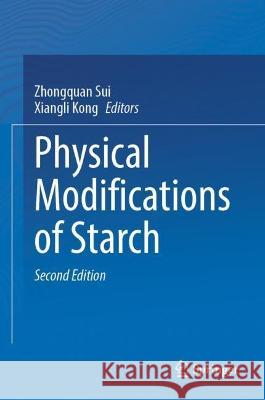Physical Modifications of Starch » książka
topmenu
Physical Modifications of Starch
ISBN-13: 9789819953899 / Angielski
Physical Modifications of Starch
ISBN-13: 9789819953899 / Angielski
cena 603,81
(netto: 575,06 VAT: 5%)
Najniższa cena z 30 dni: 578,30
(netto: 575,06 VAT: 5%)
Najniższa cena z 30 dni: 578,30
Termin realizacji zamówienia:
ok. 16-18 dni roboczych.
ok. 16-18 dni roboczych.
Darmowa dostawa!
Kategorie:
Kategorie BISAC:
Wydawca:
Springer
Język:
Angielski
ISBN-13:
9789819953899











